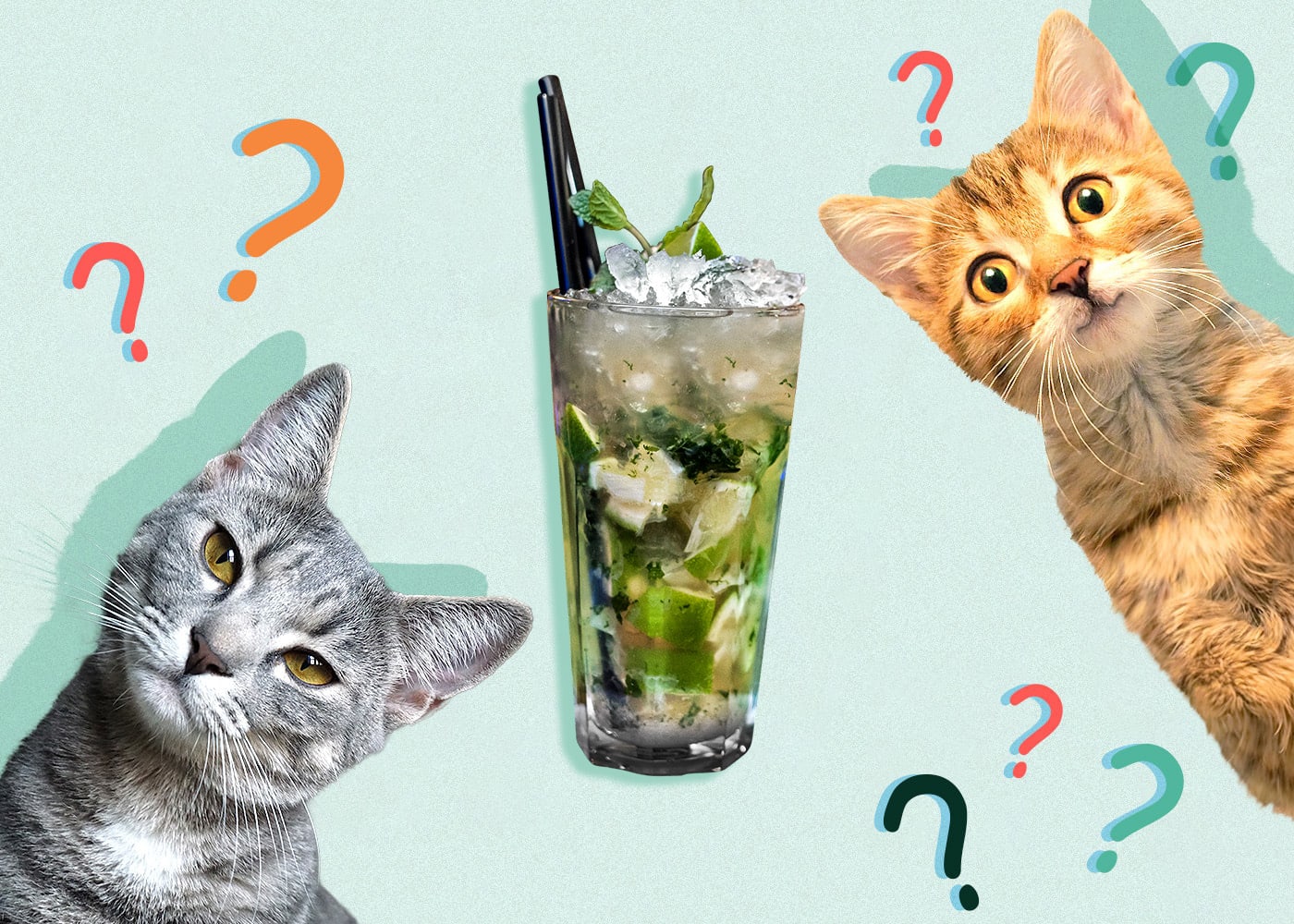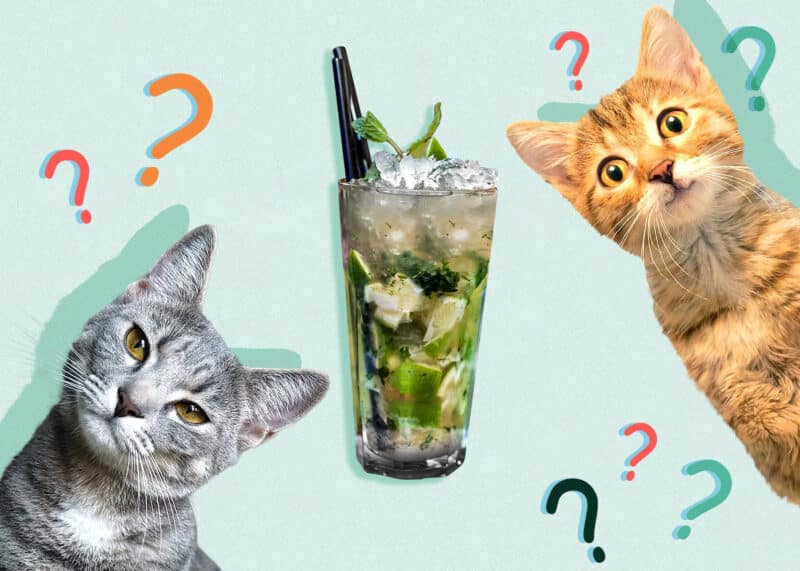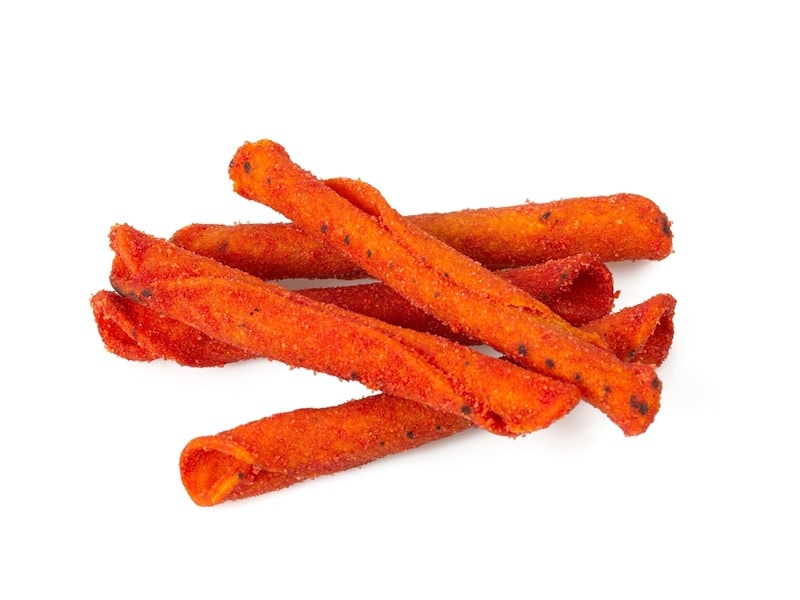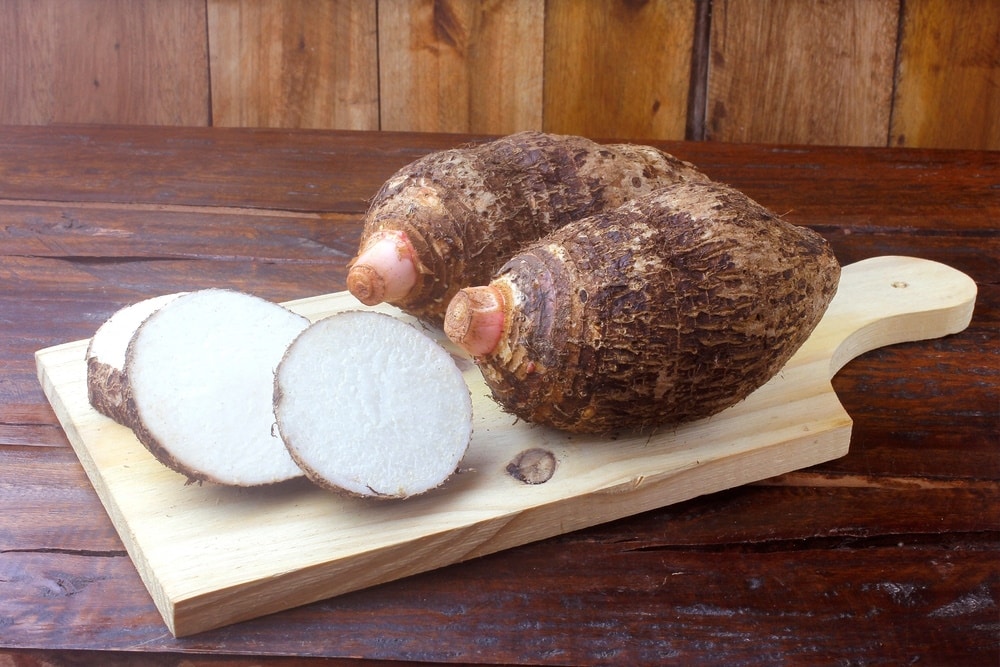For some people, there is no better way to de-stress and wind down from a long and busy day than kicking back with your favorite glass of wine, beer, or spirit.
You may notice your curious cat sniffing around your glass and wonder if cats can drink alcohol. Sadly, the answer is a firm no.
Cats should not consume any amount of alcohol. In this article, we’ll explain why, discuss the effects of alcohol, and how to keep your kitty safe.
Is Alcohol Dangerous for Cats?
Alcohol is dangerous and should not be given to cats in any amount or form. First, their bodies are much smaller than ours, and alcohol, even in small doses, can be lethal. Most types of alcohol contain ethanol, which is toxic to cats, and sadly, just one teaspoon is enough to cause alcohol poisoning.
When a cat ingests alcohol, its liver and kidneys struggle to get rid of the poison, especially if they consume too much. Alcohol-based cleaning products such as mouthwash or sanitizer can also harm your cat.
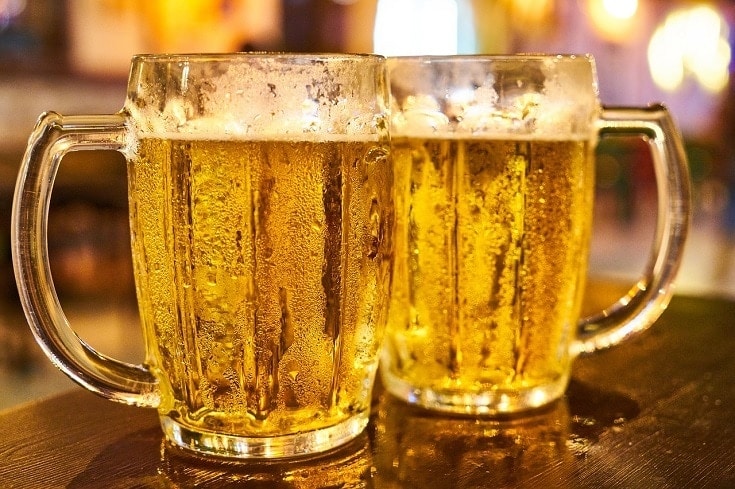
What Are the Signs of Alcohol Poisoning in Cats?
If your cat experiences alcohol poisoning, it will experience signs similar to intoxicated humans. These include stumbling and falling over, vomiting, and nausea. Other signs may include:
- Lethargy
- Disorientation and decreased awareness
- Muscle tremors
- Seizures
- Paralysis
- Increased thirst
- Shallow breathing
What Should I Do if My Cat Drinks Alcohol?
It will probably be okay if your cat licks wine off your finger or dips its nose into your wine glass. The likelihood of your cat guzzling your alcoholic beverage is very low since they typically do not enjoy the taste and are not naturally drawn to the smell.
However, all cats are different, and although it’s rare, it can still happen. There is no time to waste if you suspect your cat has consumed more than a little alcohol. Call your veterinarian or the Pet Poison Helpline immediately and monitor your cat closely for any signs of alcohol poisoning.
Try not to panic, and don’t attempt to treat your cat yourself. If anything, try to get your cat to drink water, but getting professional assistance is crucial. Your veterinarian will assess your cat’s situation and treat it accordingly. This could include administering IV fluids or other medications to help your cat recover.
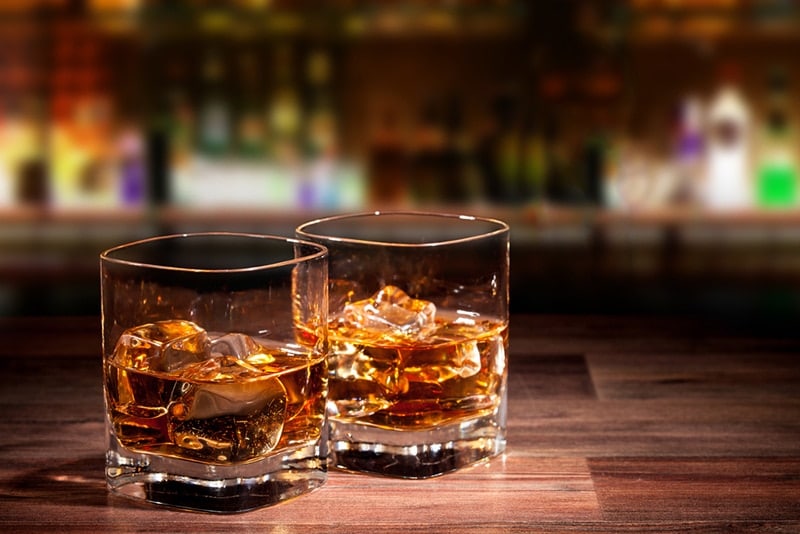
Can Cats Have Alcohol If It Is Cooked Into a Meal?
The answer to this question will depend entirely on what has been cooked as the cooking process cooks off the alcohol content. However, there is still no guarantee that it is completely gone, so it’s better to keep your cat away from any food cooked with alcohol.
If it’s a cake like a brandy tart, your pet should not eat it. Cats should not consume sugary human foods as they are high in fat and include other potentially harmful ingredients such as chocolate. If the food is a stew or casserole, the answer is still no. They are often cooked with onions and garlic, which are highly toxic to cats. Serving high-quality cat food to your cat is the healthiest diet, and you should avoid feeding human food or beverages.
But Why Do They Have Wine for Cats at Supermarkets?
Ok, you have seen “cat wine” at the supermarkets, which may confuse you, but we assure you there is zero alcohol content in these products. It is a novelty product made for your cat to enjoy your celebrations with you and is typically made using beet juice, preservatives, and catnip. It is safe for your cat to drink in small quantities. Cat wine is a safe alternative if your cat is one of the rare few that tries to get into your glass.
However, it is always best to consult your vet before giving your cat anything new and to give it to your cat gradually over a few days. It may be high in sugar, which can be a problem for diabetic cats, and some ingredients may cause stomach upset, so always talk to your vet before serving cat wine.
How to Keep Your Cat Safe from Alcohol
Prevention is always better than the cure, so if your cat is one of the rare felines that are curious about the contents of your wine glass, then it’s vital to keep it safe.
- Keep your drink out of your cat’s reach. Don’t take your eyes off your glass for even a minute.
- If you enjoy sipping slowly while cooking or cleaning, drink from a glass or bottle with a lid or a straw.
- Don’t leave glasses with even the tiniest amount left at the bottom. Rinse your glass out or dispose of your bottle.
- Don’t leave alcohol bottles open. Put your cork back in your wine bottle or lid on your whiskey bottle and store it away from your cat.
- If you are having friends over, ask them to do the same, and if there is a punch bowl, make sure it is covered properly.

Conclusion
While most cats are not drawn to alcohol like their humans, a few are more curious and may want to experience what their owner is enjoying. If your cat is one of the curious ones, do not feed it alcohol of any form or amount. If your cat ends up drinking alcohol, you should take it to the vet immediately. Continue to drink your drink at the end of the day and enjoy any festivities, but don’t forget to keep your feline in mind when there is alcohol around.
Related Reads:
Featured Image Credit: Jag_cz, Shutterstock

